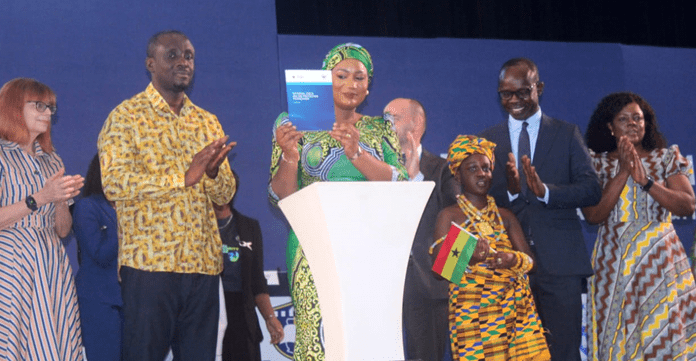By Christabel DANSO ABEAM
The Cyber Security Authority (CSA) has unveilled the National Child Online Protection Framework – aiming to safeguard children’s digital safety in the country.
This initiative is in line with the International Telecommunications Union (ITU) and United Nation International Children’s Emergency Fund’s (UNICEF) scheme to protect children from cyber threats such as cyber-bullying and online abuse as the country is witnessing a rapid increase in internet usage among young people, along with the growing risks associated with online activities.
According to data from DataReportal, there were 24.06 million internet users in Ghana at the start of 2024 when internet penetration stood at 69.8 percent.
The report also stressed that as at January 2024, 7.80 million Ghanaians living in Ghana were social media users – equating to 21.5 percent of the total population.
The launch, held under the theme ‘Empowering young minds: Creating opportunities, promoting a safer digital Ghana’, also saw the grand finale of the 2024 National Cybersecurity Challenge (NCC) held in Accra.
The competition is an initiative spearheaded by the CSA, to promote awareness on cyber safety among Senior High School (SHS) students, by providing them practical experiences in identifying and preventing cyber threats.
St. Peters SHS emerged winners of the NCC 2024 edition with 76 points, while Achimota SHS placed second by earning 65.5 points.
Wa SHS weas third with 54 points and Serwaa Kesse Girl’s SHS fourth with 38 points.
The contestants took home cash prizes, certificates of participation, laptops, branded souvenirs, medals for the winner and 1st runner-up – and St. Peters SHS was awarded a trophy to crown their victory.
Speaking at the launch, Director General -CSA Dr. Albert Antwi-Boasiako acknowledged the rapid growth in internet usage and its potential threats.
He said: “The rapid emergence and advancement of technologies highlight the rapid evolving nature of the digital era. While these advancements offer significant benefits they also present substantial threats, especially to children”.
He further stressed that a survey conducted by the Child Online Protection Division of the CSA in some selected SHSs in the Greater Accra Region, aiming to collect information about the online habits, risks and vulnerabilities of students using the internet, established that 64.35 percent of students reported receiving pornographic material in various forms – including images, words and videos.
“All these data reflect the need for effective interventions by the state and relevant stakeholders to protect children and young adults from harmful material while upholding their right to access information.”
Dr. Antwi-Boasiako reaffirmed their dedication to working with all stakeholders in implementing relevant measures that safeguard the digital life of every child; and called for a collaborative effort from all stakeholders.
The Second Lady, Samira Bawumia, also recorgnised the internet space becoming a tool of empowerment and developing which allows children to learn and connect – but has however developed into a landscape fraught with risks that threaten the innocence, security and well-being of the youngest and most vulnerable citizens.
She further underscored the importance of collaboration between government, educational institutions and private organisations in addressing the complexities of cybersecurity.
“The threats our children face are real and alarming, requiring our collective action; and we cannot afford to be passive as these risks continue to evolve.”
The Second Lady highlighted the National Child Online Protection Framework’s efficiency. She said the framework encapsulates a comprehensive approach, recognising the diverse aspects of online safety and empowering that safety while addressing unique challenges children face in the digital landscape.
Mrs. Bawumia reiterated government’s commitment to partnering all stakeholders to provide safety for children and young adults who patronise the internet.










